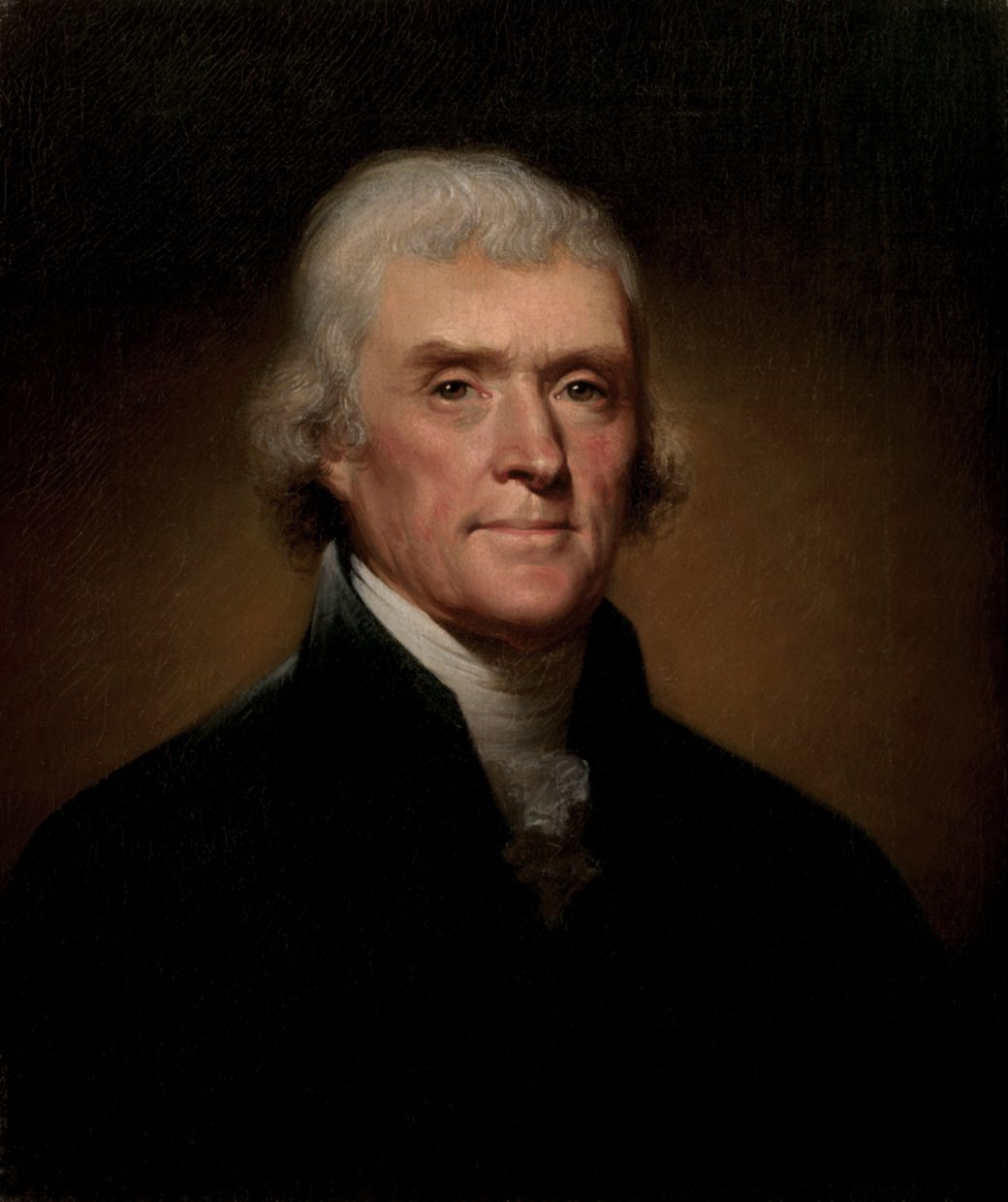We owe tremendous thanks to our Founding Fathers for the gifts of liberty that we enjoy today.
Thomas Jefferson is one of those Founders at the top of that list. Jefferson lived a fulfilled life being known for many professions and titles. He also served as a diplomat, lawyer, architect and could speak in several languages. He is probably most remembered as the principal author of the Declaration of Independence, working on the “Committee of Five” along with John Adams, Benjamin Franklin, Robert Livingston and Roger Sherman. He served as the Governor of Virginia, Congressman, the first Secretary of State under George Washington, Vice President under John Adams and President of the United States from 1801-1809.
Being influenced by others, such as Patrick Henry, Jefferson became devoted to the cause of American freedom and liberty. Jefferson worked his pen to see this newly formed nation would be like none other and that it was to be built on Christian values. He dedicated his life to
establishing a governmental framework for his country based on the same Biblical principles. Jefferson understood the need for God’s wisdom and his role in developing a government that assured freedoms.
By Jefferson’s calculations, while church and state are to be separate, they are still to be one.
Slavery and Debt
Jefferson would pursue reforms to slavery and took on several court cases for those slaves who were seeking freedom. He argued that all are born free with personal rights and liberty that are God given to all.As President, he signed the congressional “Act of Prohibiting importation of Slaves.”
Despite this, Jefferson himself typically held about 200 slaves at his own home at Monticello with a combined total of 600 over his lifetime. The state of Virginia had tough proslavery
laws, which dated back as far as 1691— long before Jefferson’s birth. The state implemented significant economic hardships for most slave owners to have to overcome if they were considering emancipating their slaves. Today we can see Jefferson’s life of contradiction, our enjoyment of discounted products made from exploited labor overseas notwithstanding.
Declaration of Independence
Jefferson often studied the Bible and created laws in consideration of religious liberty. The greatest example is found in his drafting of the Declaration of Independence, which was introduced to Congress on June 7, 1776.
Jefferson was extremely proud of this accomplishment, much of which was influenced by the Bible and his many consultations with Adams, Franklin, Livingston and Sherman.
The document was formally declared on July 2, with final draft approval on July 4, 1776. The Declaration reads: “…the Representatives of the United States of America … …appealing to the Supreme Judge of the world for the rectitude of our intentions… … with a firm reliance on the protection of Divine Providence, we mutually pledge to each other our Lives, our Fortunes and our sacred Honor.”
Jefferson wanted this document to reveal who we were as a people.
Religion and Government
Jefferson held a true reverence for the Creator and the Bible. He also seemed to have a fear of God but an even greater fear that this newly created American Government would endorse one central religion. He fought hard to see that the government would never get between the freedom of the individual and their creator.
He held a strong connection with his creator and the moral teachings found in the Bible. He wanted both government and church to flourish independent of one another. In Jefferson’s mind, religion was expected to prepare people for political office as it did for him, as found in the wording of The Declaration of Independence.
Freedom and the Bible
An advocate for both, Jefferson wrote: “God who gives us liberty, and can the liberties of a nation be thought secure when we have removed their only firm basis, a conviction in the minds of the people that these liberties are of the gift of God? That they are not to be violated but with his wrath? Indeed, I trembled for my country when I reflect that God is just, that his justice cannot sleep forever.”
Jefferson drafted the Virginia Statute of Religious Freedom in 1777.
Secretary of State, Vice President and President
George Washington would call on Jefferson to serve as our nation’s first Secretary of State for both of his presidential terms of 1789 and 1793. In 1796, Jefferson ran for President but lost
to John Adams. Jefferson would serve as Vice President under President John Adams 1797-1801. In 1801, Jefferson became the third President of the United States. Jefferson’s inauguration was the first held in Washington D.C.
He would still argue for religious freedom, stating, “All persons shall have full and free liberty of religious opinion: nor shall any be compelled to frequent or maintain any religious institution.”
Jefferson wanted to be sure that government and religion didn’t mix— each was as important as the other.
July 4, 1826
Jefferson died on July 4, 1826 on the 50th Anniversary of the signing of the Declaration of Independence, which served as the forerunner of our U.S. Constitution. Just hours later his good friend John Adams died. He was a brilliant mind deserving of his place on Mount Rushmore.
“All persons shall have full and free liberty of religious opinion: nor shall any be compelled to frequent or maintain any religious institution…” – Thomas Jefferson







